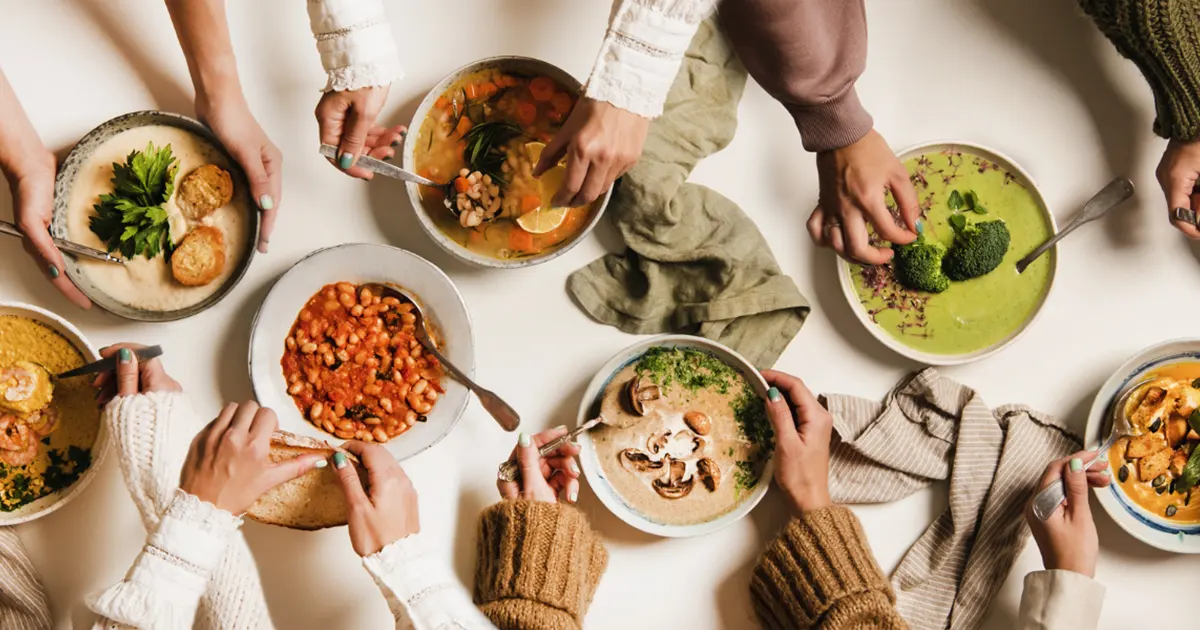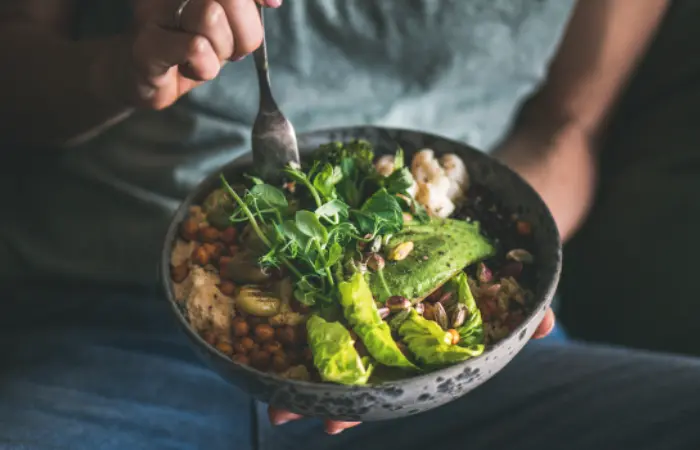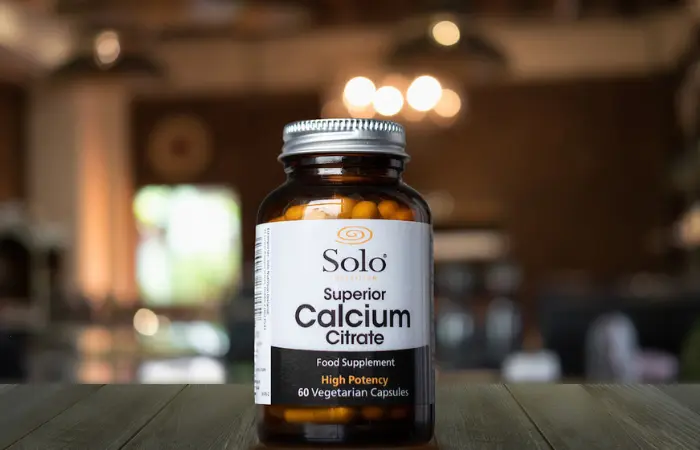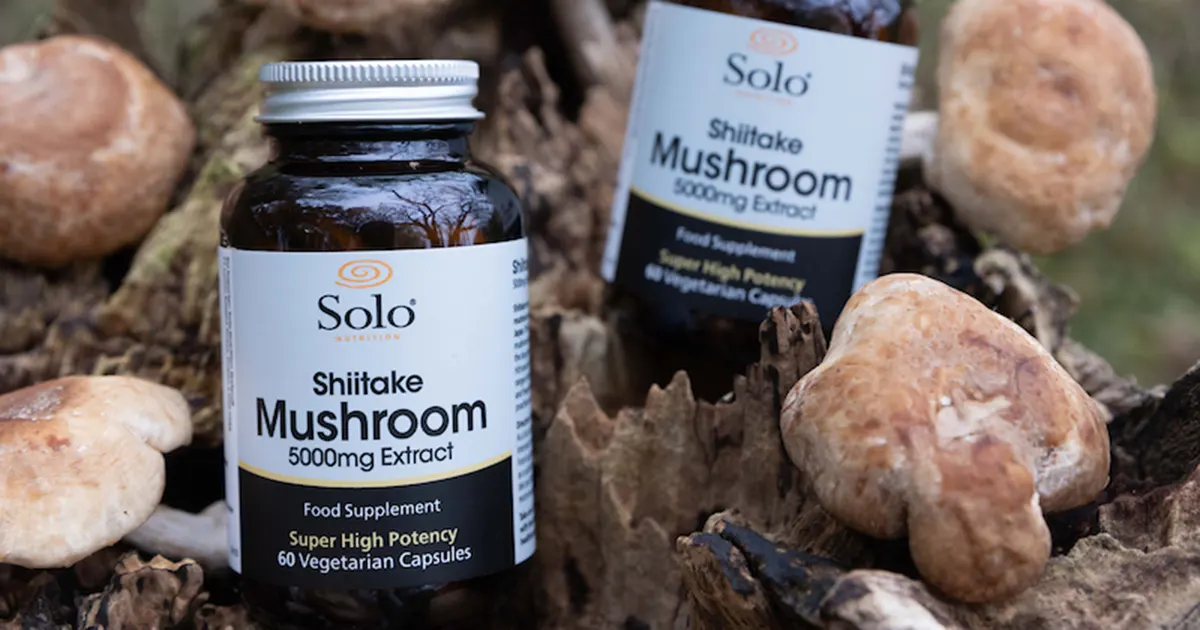
Veganuary Survival Guide: Staying Energised and Nutrient-Rich on a Plant-Based Diet
Veganuary is a movement where participants adopt a plant-based diet (or sometimes just a more plant-based leaning diet) during the month of January and, in 2024, 1.8 million people took part in it.
Reasons for doing so vary – some are concerned about the effect meat consumption has on the planet, others are motivated by animal welfare and some are in it for the potential health benefits. Not only are the reasons varied, so too are the outcomes. Whilst some transition fully to a vegan lifestyle long-term, some struggle and come February (or even before) the plant-based diet has been thrown out with the Christmas tree. In January 2025 though, again, many people will be considering taking part in Veganuary.
In this article, we’ll be looking at whether a plant-based diet can contribute to better health, and how. We also provide a guide for how to stay energised and ensure you’re getting all your essential nutrients if you do adopt a plant-based diet during Veganuary.
Veganuary – Are there health benefits to a plant-based diet?

In recent years, we’ve learnt more and more about gut microbes and this has only further proved that all of our bodies function differently, especially when it comes to the impact different foods have on our bodily functions and overall wellbeing. This makes answering even simple questions like ‘Are there health benefits to a plant-based diet’ impossible to answer straightforwardly.
What we do know is that consumption of highly-processed foods is leaving us in danger of becoming nutrient deficient. Possibly because if we’re filling up on saturated fats, sugars and salt then we’re not leaving room for the nutrient-dense foods our bodies need, such as fruits and vegetables, which are packed full of vitamins and minerals and are essential for maintaining many aspects of our body’s functions.
Those on a whole foods plant-based diet should be getting more fruits and vegetables and may also consume more legumes (beans, lentils, etc), nuts, seeds and whole grains. So, when following a healthy vegan diet, many people report consuming a larger variety of foods than before and feeling healthier for it.
However, not everybody who adopts a vegan diet opts for a whole foods or health-conscious approach. If you cut dairy and meat from your diet and instead fill up on highly-processed meat and dairy alternatives, then you probably won’t be optimising your nutrition. In fact, you could become less healthy because, whilst some of these foods may contain added B12 or protein, they often lack other sufficient nutritional content.
Essentially, when you cut certain food groups out of your diet you must find other ways to consume those nutrients. So it’s essential to plan your diet well and be informed about what your body needs and how you might source that.
Let’s explore some of the things to consider when taking part in Veganuary and how you might overcome the potential pitfalls of eliminating or cutting back on meat and dairy –
Getting Enough Iron
Iron is a mineral used to make proteins in red blood cells, specifically haemoglobin and myoglobin, responsible for carrying oxygen around the body and to the muscles. Iron contributes to normal cognitive function, metabolism, functioning of the immune system and healthy functioning of red blood cells. Whilst we don’t need huge amounts of iron (unless perhaps you’re a weightlifter), it is very important to get enough. Women may experience loss of iron during menstruation cycles, due to loss of blood. This may explain why some women report feeling more tired during this time since iron contributes to the reduction of tiredness and fatigue.
Many of us get the majority of our iron through meat consumption. Red meat is particularly high in iron. However, iron can also be found in other foods including lentils, chickpeas, tofu, spinach, and fortified cereals.
If you’re taking part in Veganuary and you are feeling less energetic then you might want to look at your iron intake. Boost plant-based foods that contain iron but be aware that the quantities may be lower.
However, there is a way of boosting iron without necessarily consuming more because vitamin C increases iron absorption! Therefore, pairing iron-rich foods with vitamin C sources like citrus fruits, bell peppers, or tomatoes can boost absorption.
You might also consider taking a vitamin C supplement as this will not only increase vitamin C but may help your body to consume plant-based iron.
Elusive B12 on a Plant-based Diet
Vitamin B12 is crucial for nerve function and red blood cell production but is mostly found in animal products. Or at least, it was. You see, the way we farm now has seen a massive decline in B12 since it’s a bacteria-produced nutrient found in the soil – We eat the plants grown in the soil, or we consume the animals that eat the plants grown in the soil, and we benefit from the B12 which is important because it isn’t something the body produces itself. Now, demand for food is high and wastage is so costly for food producers so we overfarm land and soil is becoming less nutrient-dense. We also use pesticides that kill not only the bad but also the good and we wash our vegetables to rid them of bacteria, including that which produces B12. It’s a case of having solved one major issue and, in doing so, causing another one. That problem being that most of us are B12 deficient – even meat eaters. In addition, the body’s ability to absorb B12 declines with age.
Many food producers are adding B12 to products, including fortified cereals, bread, plant-based milk and nutritional yeast. However, many people, especially those on plant-based diets, also take a daily B12 supplement to meet their daily needs.
Optimising Protein during Veganuary
Protein contributes to both the growth and maintenance of muscle mass and bones. According to the National Library of Medicine, a healthy adult with minimal physical activity needs 0.8g of protein per kg body weight daily. Those engaging in moderate exercise may need between 1.0 and 1.3g of protein per kg of body weight per day and up to 1.6g may be needed for those who are highly physically active. Protein is in many foods but is especially high in meat. Therefore, some following a vegan diet may make getting sufficient protein a challenge.
Good plant-based sources of protein include beans, lentils, tofu, tempeh, edamame, quinoa, nuts, and seeds. Aim to include a source of protein in every meal to ensure you’re getting all the essential amino acids.
Omega-3 Fatty Acids
Omega-3s support brain and heart health. While fatty fish, including mackerel, salmon, sardines, etc are a common source, vegans can turn to nuts and seeds to get their dose of essential fatty acids. These include flaxseeds, chia seeds, hemp seeds, walnuts, edamame, seaweed and rapeseed. It can be challenging to introduce more of these foods into your diet but walnuts are a great daily snack and seeds can be sprinkled onto cereal, toasted and added to salads, or used in homemade smoothies. You might also consider rapeseed oil more in cooking or a salad dressing, especially since it has very low levels of saturated fat and far 10 x more omega 3 than olive oil.
Calcium on a Plant-Based Diet
Although many of us have been led to believe that calcium is only available via dairy, largely due to advertising and the labelling of these products, there are many vegan sources of calcium.
Calcium is needed for the maintenance of normal teeth and bones and plays a role in the process of cell division and normal neurotransmission. Plant-based calcium sources including –
- Tofu
- Leafy greens – kale, bok choy, etc.
- Broccoli and other cruciferous vegetables
- Pulses – chickpeas, kidney beans, etc.
- Almonds
- Sesame seeds
- Fortified foods – plant milk, plant yoghurt, soya, etc
Calcium is very important though so you may consider a calcium supplement. If seeking a calcium supplement, opt for calcium citrate as it’s easier for the body to absorb than calcium carbonate.




